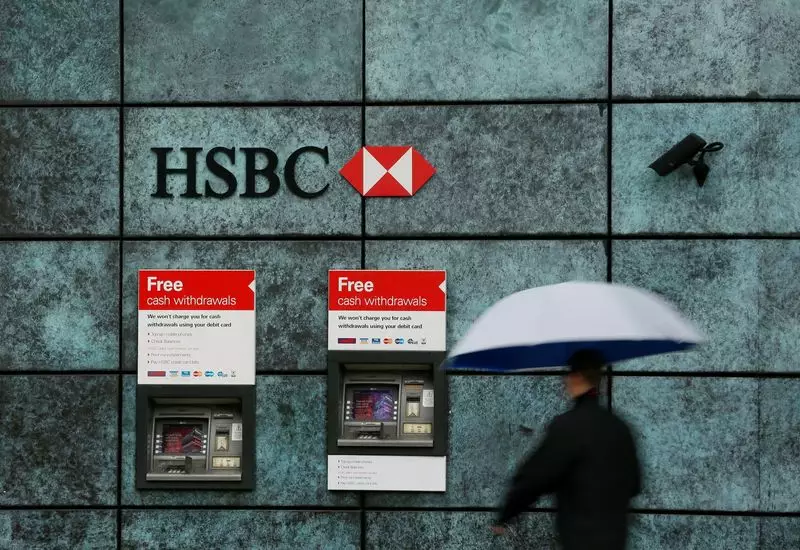HSBC Holdings has reported its third-quarter profit for the current fiscal year, showcasing a notable performance that exceeded market expectations. The bank’s profit surged by 10% year-on-year, reaching $8.5 billion, a figure that surpassed analysts’ projections of approximately $7.6 billion. This impressive financial outcome can largely be attributed to a rise in revenues from both wealth management and wholesale banking services. As global markets grapple with fluctuating interest rates and economic uncertainty, HSBC has managed to carve out a successful quarter, a feat that has piqued the interest of investors as well as market analysts.
The bank’s improved profit margins are indicative of its strategic positioning in the markets it operates. The steady performance in the wealth segment is particularly noteworthy, as clients are becoming increasingly active amid volatile market conditions, driven by global macroeconomic factors. Such trends suggest that HSBC has not only benefitted from favorable market dynamics but has also effectively leveraged its robust customer relationships to enhance revenue streams.
In an appealing move to further entice investors, HSBC announced a share buyback program worth up to $3 billion, contributing to an earlier plan introduced earlier in the year, which authorized a buyback of $6 billion. This dual approach underscores the bank’s commitment to returning capital to shareholders and reflects its positive outlook on long-term financial stability. Following this announcement, HSBC’s shares experienced a notable 3.7% increase, reaching HK$71.60, marking the bank’s highest price since August 2018.
The share buyback strategy signals not only confidence in current financial health but also aims to support share prices amid the uncertain economic landscape. At a time when many financial institutions are experiencing headwinds due to changing interest rates and economic challenges, such robust measures provide a sense of security to investors. It is a clear indication that HSBC is not only focused on immediate profits but also on sustaining investor confidence through prudent financial management.
The recent earnings statement from HSBC came alongside crucial disclosures regarding a sweeping restructuring plan spearheaded by new CEO Georges Elhedery. His plan aims to streamline operations and improve efficiency across the bank’s global footprint, a necessity in the current lower-for-longer interest rate environment. HSBC is committing to merge certain operations and reorganize its geographic strategy by splitting into Eastern and Western divisions. This anticipated change is not just about cost-cutting but is also intended to lay the groundwork for a more agile, responsive banking entity.
While these initiatives have garnered positive sentiments, they also come with uncertainty, particularly relating to their long-term financial effects. As financial markets prepare for this overhaul, analysts, including Michael Makdad from Morningstar, emphasize the need for transparency regarding costs and expected synergies. Stakeholders will be keenly observing how these changes are implemented in practice and the subsequent impact on profitability. The clarity around these transitions will be paramount in reassuring markets of HSBC’s ability to adapt in a shifting economic landscape.
As part of its strategy moving forward, HSBC has maintained a mid-teen target for return on tangible equity for 2024 and 2025. However, the bank has admitted the difficulty of navigating a changing interest rate environment. This nuanced understanding of financial conditions will be critical as they refine their approach in the forthcoming years.
On the dividend front, HSBC continues to reward its shareholders, announcing a 10 cents per share interim dividend. This marks the third dividend payout in 2024, highlighting the bank’s commitment to maintaining shareholder value amidst evolving market conditions.
While HSBC has reported gratifying earnings in its latest quarter, the continuing challenges posed by fluctuating rates and economic instability require a careful balancing act. With a clear strategic direction under new leadership, HSBC is poised to navigate these complexities, yet it must also communicate effectively with stakeholders to instill confidence. The various measures taken to enhance shareholder returns, alongside a diligent approach to restructuring, suggest that HSBC is keen on positioning itself favorably for both immediate and long-term success. The evolving narrative will undoubtedly captivate investor interest as HSBC journeys through a critical phase of transformation and growth.

